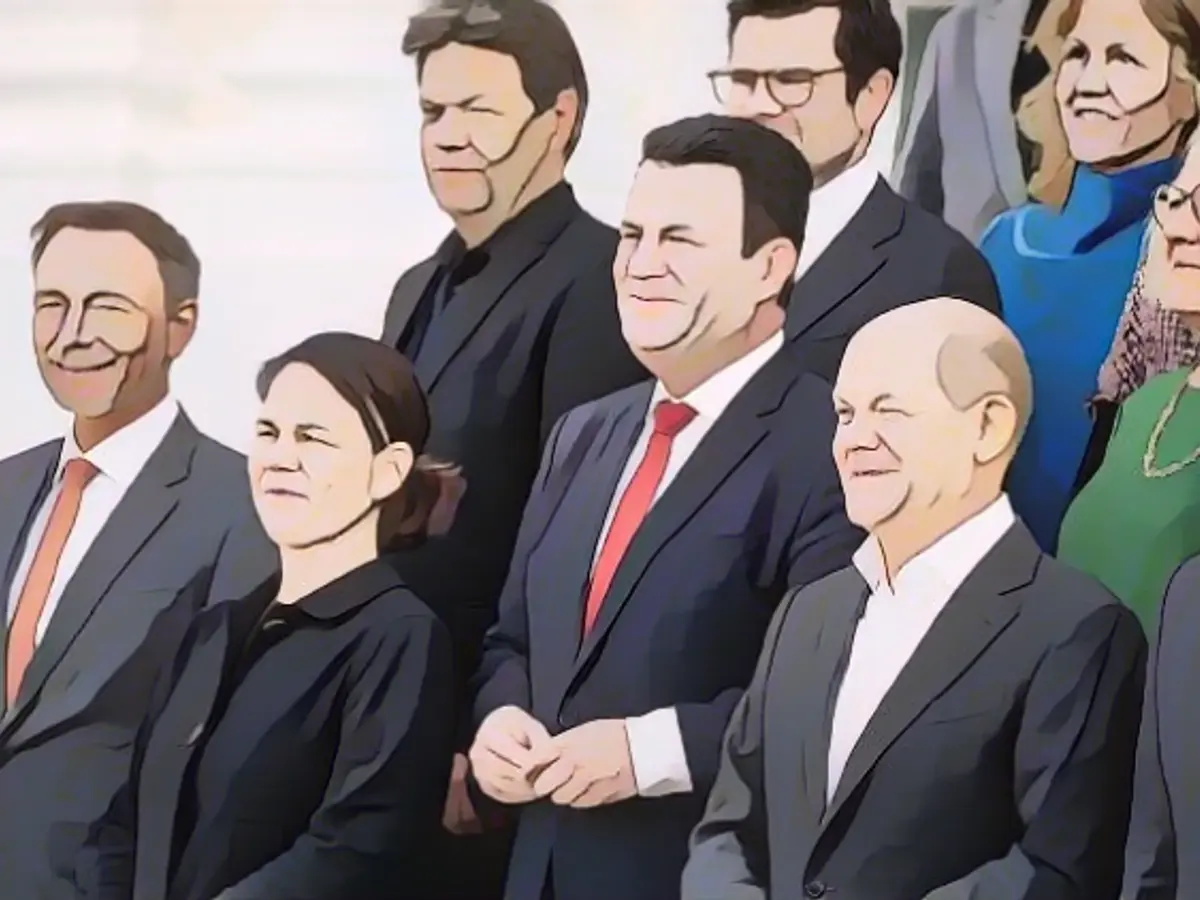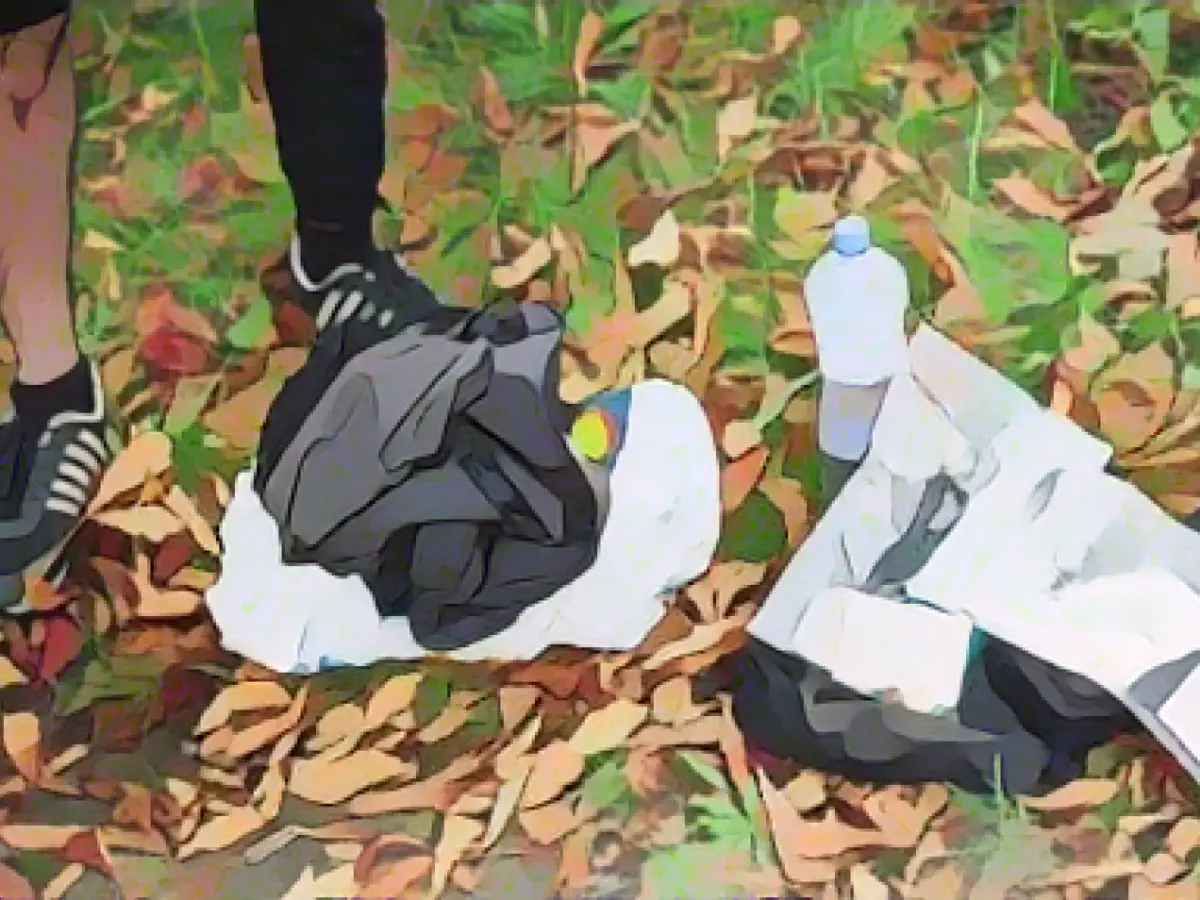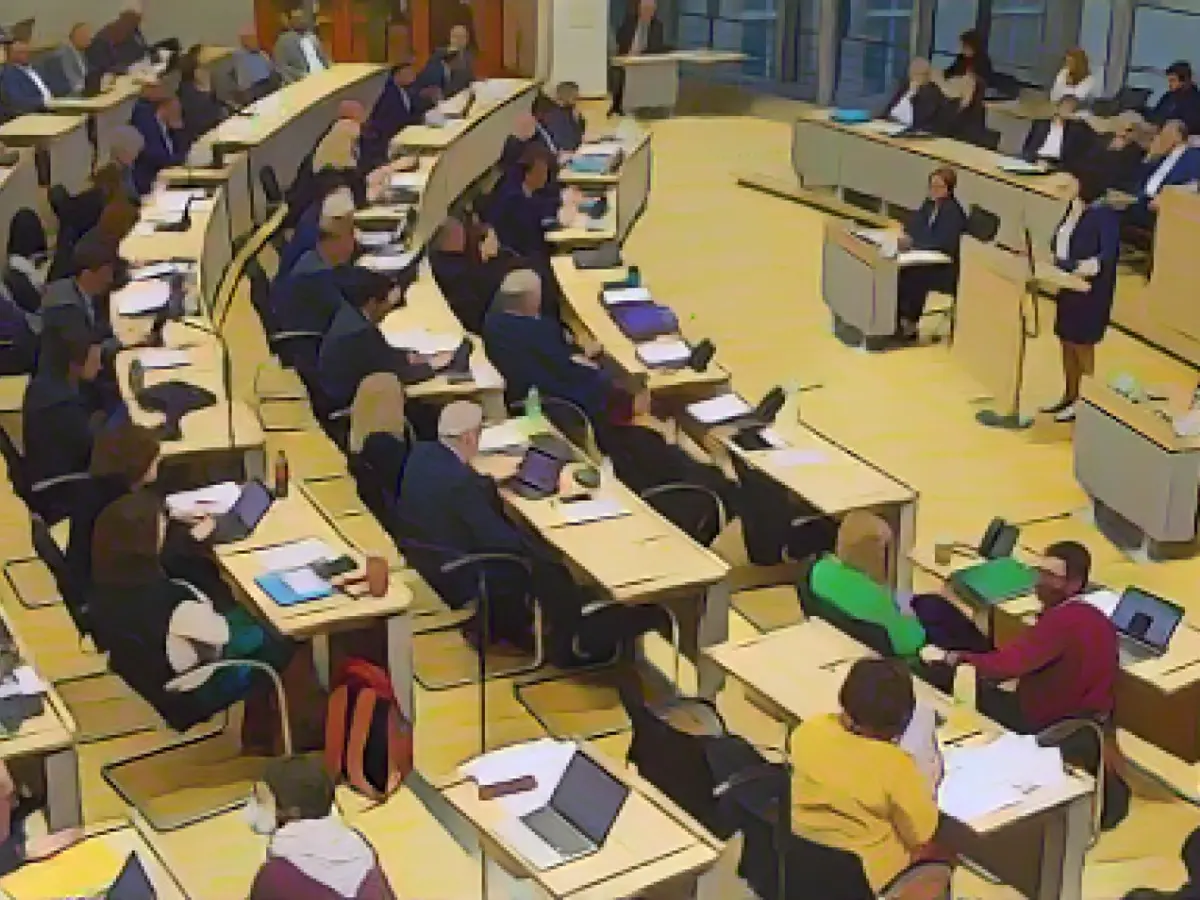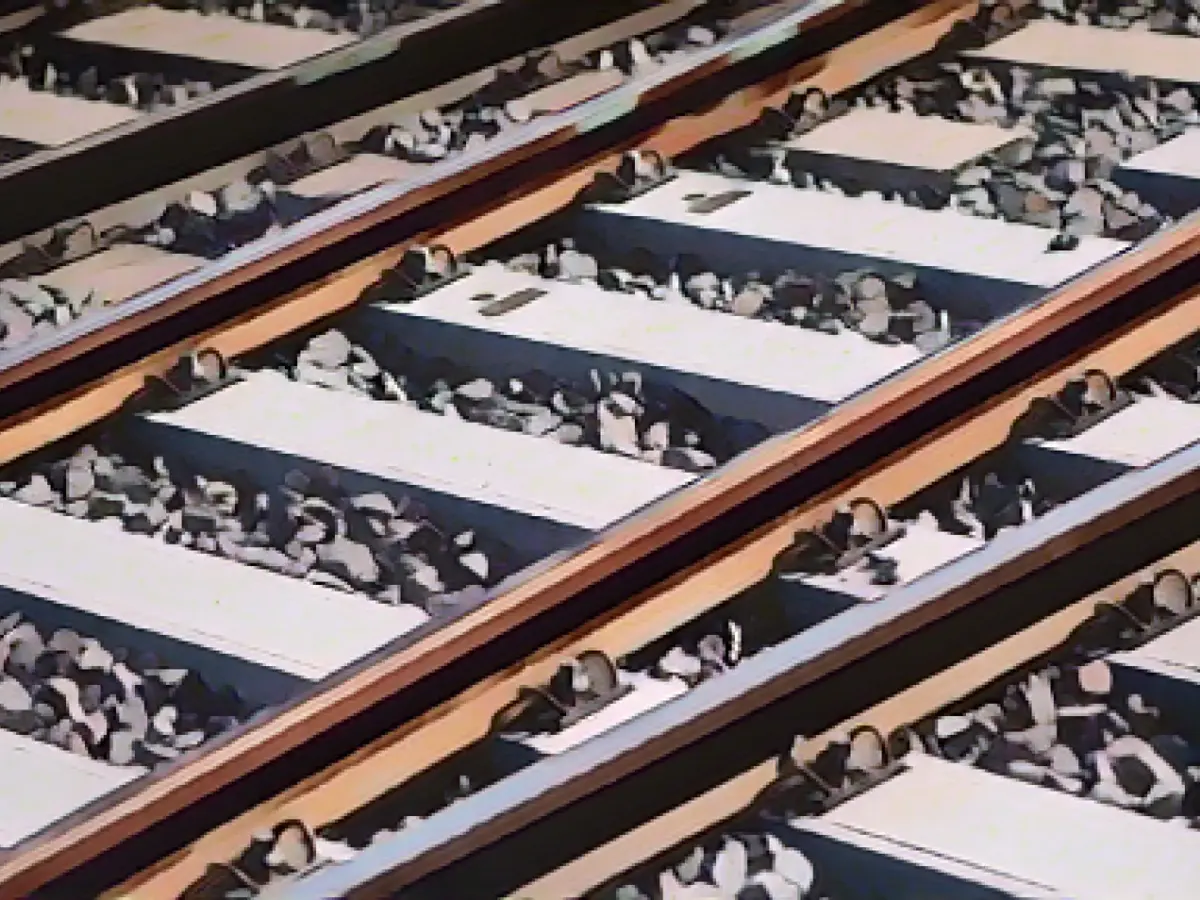The traffic light coalition's budget disagreements persist
Time is ticking: The coalition aims to wrap up next year's budget before the Christmas break. The Greens and SPD are pushing for another suspension of the debt brake, while the FDP is against it. A resolution has yet to materialize, and here's why.
Chancellor Olaf Scholz, Finance Minister Christian Lindner, and Economics Minister Robert Habeck have failed to reach a consensus on the budget, with a $20 billion shortfall at stake. Lindner outlined new facts in a recent address, revealing that the media had misrepresented the situation. Approximately $6 billion of the deficit was due to increased citizen's income expenditures, and $3 billion was due to reduced electricity tax costs.
The citizen's income dilemma
The FDP advocates for halting the planned inflation-linked rise in the citizen's income, as the actual inflation rate was lower than forecasted. However, the SPD finds this proposal unacceptable, as the citizen's income was a prestige project for them and a departure from Hartz IV, a contentious labor reform initiative by former SPD chancellor Gerhard Schröder.
The basic child benefit conundrum
The CDU/CSU is pushing for a reduction or total elimination of basic child benefit, a proposal also gaining popularity within the FDP. Family Minister Lisa Paus' initial $12 billion demand was reduced to $2.2 billion by Lindner. For the Greens, backing down on this initiative could tarnish their image as advocates for social issues.
Debt brake concerns
Suspending the debt brake is a popular solution among large sections of the SPD and Greens, but the FDP raises constitutional concerns. Justifying another suspension during a state of emergency, such as the ongoing war in Ukraine and energy crisis, could be challenging, especially if the Federal Constitutional Court intervenes.
For Lindner, maintaining a strong stance on financial stability and tax increases is crucial. Sounds like a tough balancing act, no?
Concessions may harm prestige projects
Making concessions on their pet projects could be detrimental for all three coalition parties. If the SPD, Greens, or FDP is perceived as caving, election campaigns could suffer. Unpopular suggestions, like scrapping pension benefits and aid to Ukraine, could harm the coalition's public image.
Are energy subsidies a possible salvation?
The Federal Environment Agency estimates climate-damaging subsidies at €65 billion, with several billion potentially available for budget adjustments. Cutting subsidies is generally in line with the FDP's beliefs, but the SPD and Greens might see this as a betrayal of green policies.
It's time to take action
The traffic light leaders are under pressure to reach a consensus, as a Christmas break delay would be embarrassing. Although resolving the budget disputes will require political compromise and adaptation, finding a solution is essential for the coalition's future.
How about development aid reductions?
Lindner has proposed cutting development aid to help address the budget deficit. While the figure seems substantial at €28 billion, the allocation appears justifiable from a rational perspective. However, reducing aid while grappling with the climate crisis and global inequality could be a tough sell for the SPD and Greens.
Act now
Coalition representatives acknowledge that the coalition's external image is negative due to internal disputes. Now is the time to deliver results and demonstrate unity, a crucial factor in maintaining public support. Lindner plans to submit proposals to the Bundestag shortly, setting the stage for a heated debate.
Reading further
- [Precautionary arrests highlight Islamist terror threat] (link-to-article-2)
- [Lobbyists sprout like weeds at climate conference] (link-to-article-3)
- [COP28: United Arab Emirates unveil climate project fund] (link-to-article-4)
The traffic light coalition grapples with next year's budget, with the Greens and SPD advocating for the debt brake suspension and FDP in opposition. The coalition's chancellor, finance minister, and economics minister are still struggling to reach a consensus, with the $20 billion shortfall presenting a significant obstacle.
Following a recent address by Finance Minister Christian Lindner, it's clear that the media has misrepresented the budget situation, with $6 billion attributed to increased citizen's income expenditures and $3 billion due to lower electricity tax costs.
The citizen's income controversy
The FDP is advocating for a hold on the planned inflation-linked rise in the citizen's income, with actual inflation rates lower than forecasted. However, this proposal faces resistance from the SPD, as the citizen's income has become a prestige project and departure from Hartz IV for them.
Basic child benefit dilemma
Reducing or eliminating basic child benefit is a proposal favored both by the CDU/CSU and the FDP. However, this proposition creates tension within the coalition, as the Greens view it as essential for protecting social issues.
Debt brake concerns
Suspending the debt brake is a preferred solution among the SPD and Greens, but the FDP raises constitutional concerns, with the potential for the Federal Constitutional Court to intervene.
So, where do we go from here?
The traffic light leaders are under pressure to reach a compromise, with a Christmas break delay seen as a public relations blunder. While resolving budget disputes will require political compromise and adaptability, demonstrating results and unity are crucial for the coalition's future.
Considering energy subsidies
The Federal Environment Agency estimates climate-damaging subsidies at €65 billion, granting potential flexibility in budgetary adjustments. Cutting subsidies aligns with FDP beliefs but may be perceived as a betrayal of green policies by the SPD and Greens.
It's time to act
Coalition representatives acknowledge the coalition's negative external image due to internal discord. Lindner plans to submit proposals to the Bundestag soon, setting the stage for a heated debate.
Source: [link-to-source]
Additional insights
- The current budget tussle in the German traffic light coalition primarily revolves around fiscal policy and the debt brake.
- The SPD and Greens, wishing to implement policy initiatives, argue against the debt brake's restrictions on their budget, while the FDP supports fiscal discipline and debt reduction.
- The Greens value investments in green energy and climate adaptation, while the SPD emphasizes infrastructure and defense spending.
- Reforms to the debt brake, coalition partnerships, and fiscal strategies that balance green perspectives and financial discipline may help their budget disagreements.
The traffic light coalition struggles to iron out next year's budget, with the Greens and SPD advocating for debt brake suspension, while the FDP opposes it. The chancellor, finance minister, and economics minister have yet to find a resolution, grappling with a $20 billion deficit.
FDP's Christian Lindner argued that the media had exaggerated the budget shortfall, with $6 billion due to enhanced citizen's income expenditures and $3 billion from reduced electricity tax costs.
The FDP has called for the planned citizen's income increase to be thwarted, even if they had previously defended the idea as a constitutional requirement. However, the SPD considers the citizen's income a prestige project and is unwilling to entertain such proposals.
Reducing or eliminating basic child benefit, pursued by the CDU/CSU and enjoyed by some within the FDP, is a controversial proposition within the alliance. The Greens view it important for social protection and opposing the proposal could bring them embarrassment.
The debt brake is a significant concern for the FDP, with Linde r recognizing the need for financial stability and tax increases as central to his platform. However, the SPD and Greens believe that suspending the debt brake could provide a solution to the budget challenge.
Making concessions on core projects could harm the coalition's image, potentially compromising election campaigns. Alternative proposals like withdrawing pension support, foregoing aid to Ukraine, or canceling promised chip plant subsidies are unlikely to gain popularity.
The coalition leaders are under pressure to address the budget impasse, as a delay during the Christmas break would be insensitive, failing in their duty to shareholders. Lindner expressed confidence in submitting proposals to the Bundestag soon, although a delay could be politically damaging.
Source: [link-to-source]
Additional insights
- The German government faces a dispute over next year's budget, primarily regarding fiscal policy and the debt brake.
- The SPD and Greens seek to implement policies, opposing restrictions on their budget imposed by the debt brake. In contrast, the FDP advocates for fiscal discipline and debt reduction.
- The SPD and Greens prioritize green energy and climate adaptation, while infrastructure and defense spending are central for the SPD.
- The budget deficit could be narrowed by cutting climate-damaging subsidies, totaling €65 billion, in line with the FDP's beliefs.
- Possible solutions to the budget dispute include reforming the debt brake, exploring coalition partnerships, and crafting economic strategies that strike a balance between green policies and financial discipline.








